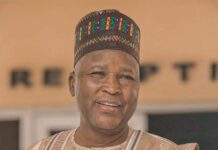Resurgence of Coups in Africa and the Existential Threats By Ukpoju Adoli Victor
A person may begin to wonder and equally ruminate on what is fueling the resurgence of coups across Africa, the ‘black’ continent.
A fact that cannot be disputed is that Africa is richly endowed with natural resources, which when fully harnessed can propel the continent to the zenith of development.
Alas, that has never been the case, as the continent, in the past and up till now, lacks credible leaders who can stand firmly and manage the resources optimally for the continent’s growth.
The crass pillaging of Africa’s abundant human capital and natural resources by its avaricious leaders, over the years, has manifested in bad governance, corruption, poverty, backwardness and political instability in many African States, among others.
Owing to mismanagement of its resources, Africa is now considered as the hub for unemployment, hunger and all forms of criminality.
It is obvious that civil unrests which inarguably lead to coup d’etat has now become the order of the day in Africa. Soldiers who wake-up and seize power at will from democratically-elected governments cite corruption, bad governance, poverty among host of other issues as reason for their action.
“African countries have had conditions common for coups, like poverty and poor economic performance. When a country has one coup, that’s often a harbinger of more coups,” said US researcher, Jonathan Powell
Reports indicated that, about sixteen West African countries have experienced 44 military coup d’etats since gaining their independence.
The overall number of coup attempts in Africa remained consistent at an average of around four a year in the four decades, between 1960 and 2000.
In 2022 alone, Africa has already witnessed two incidents of power seizure – a takeover by the army in Burkina Faso and other failed coup attempt in Guinea Bissau.
Meanwhile, 2021 witnessed a higher number of coups in Africa compared with previous years. There were successful coups in Chad, Mali, Guinea and Sudan and failed military takeovers in Niger and Sudan.
Read Also:
First came Mali, in August 2020. The military took advantage of public anger at a stolen parliamentary election and the government’s failure to protect its people from violent extremists, and arrested President Ibrahim Boubacar Keita and forced him to resign on state television. Mali actually had two coups in a nine-month span.
In April last year after the death of the Chadian leader, Idriss Déby, the army installed his son as interim president leading a transitional military council. His opponents called it a “dynastic coup.”
In September 2021, the UN Secretary-General António Guterres voiced concern that “military coups are back,” and blamed a lack of unity amongst the international community in response to military interventions.
“Geo-political divisions are undermining international co-operation and… a sense of impunity is taking hold,” he said
Again, in March 2021, there was a failed coup attempt in Niger, then in September 2021, it was Guinea’s turn: A high-ranking officer trained by the United States overthrew a president who had tried to cling to power. Then in October, it was Sudan’s: The country’s top generals seized power, tearing up a power-sharing deal that was supposed to lead to the country’s first free election in decades.
Still, in January 24, 2021, the military junta led by Lieutenant Colonel Paul-Henri Damiba, overthrew Burkina Faso’s president, Roch Marc Christian Kabore amid a deepening security crisis in the country.
More so, it can be recalled that, a coup was also attempted in Guinea-Bissau on February 01, 2022, but was fortunately thwarted. A few hours later, president Umaro Sissoco Embalo declared the coup over, saying that “many” members of the security forces had been killed in a “failed attack against democracy.” This attempted military ouster was actually failed because none of the main target was killed during the uproar.
The resurgence of coups has alarmed the region’s remaining civilian leaders. Ghana’s President Nana Akufo-Addo said on Friday, “It represents a threat to peace, security and stability in West-Africa.”
Report indicated that, more than 114million people are now ruled by military junta who illegally seized power from elected governments.
It is obvious that the issues of coups are resurging in Africa as poverty, corruption and bad governance continue to prevail in the region.
This should serve as wake-up call to our leaders to rise up to their duties in order to have a society where peace and unity will reign.
Victor, is a Student of Mass Communication, Prince Abubakar Audu University, Anyingba.
















